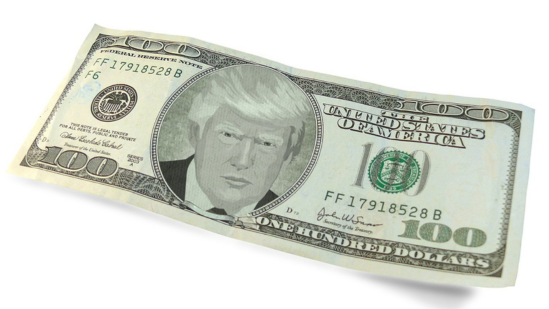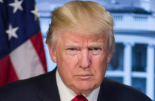State Street SPDR ETFs: Trump win delivers equity sector winners and losers
State Street SPDR ETFs: Trump win delivers equity sector winners and losers

Investors agonised over managing a complex or delayed US election result, but the Republican’s unexpectedly swift and clear election win has delivered immediate Trump Trade opportunities to some equity sectors - and potential headwinds to others.
Energy is a winner from Day One. The president and vice president repeatedly vowed on the campaign trail to increase domestic fossil fuel production — reiterating a past Republican campaign slogan 'drill, baby, drill'. Amongst early impacts, we expect expansion in the size and scope of drilling auctions. Other considerations include:
- Oil trade groups drew up ready-to-sign executive orders for President Trump on loosening natural gas export permit early in the campaign. Texas and Pennsylvania, both Republican-won, are the largest producers.
- A likely majority 'yes' vote on the Washington Initiative 2066 would prohibit state and local governments from restricting access to natural gas.
- A potential pullback on environmental legislation, with looser regulations, would imply lower compliance costs.
- The rate of replenishment of the Strategic Petroleum Reserve
As an important domestic source of revenue, we expect little direct impact from tariffs.
- A higher inflation outlook - this sector has the biggest inflation sensitivity often outperforming as the US 5-year breakeven rate rises
Financials is another immediate beneficiary of the result, as Trump pledged large-scale demolition of government regulations starting on Day One. The biggest impact would likely on banks, where deregulation would boost profitability.
- The Tax Cuts and Jobs Act will likely be extended at the end of 2025. We could expect a rollover of expiring tax cuts, with possibly additional tax cuts as mentioned by Trump (including a reduction of corporate tax rate to 20%)
- Net interest margins, which calculate the money that banks earn in interest on loans compared with the amount paid on deposits, could benefit as the result of a higher, steeper yield curve.
Industrials faces a broadly positive impact across their diverse set of industries.
- Defence stocks are likely beneficiaries as Republican administrations often prioritise defence spending. Trump has specifically called out the need for greater support by NATO members, suggesting defence spending higher than the 2% of GDP agreed by the organisation earlier this year.
- The president-elect loves tariffs and has threatened to levy 60% on goods and services imported from China and 10% or 20% for imports rest of the world. This is not promising on a global basis from a growth or inflation angle. Amongst corporates’ response could be even more need to reshore and nearshore production activities, thus raising demand for supply chain facilitators.
- Industrials stocks have been big beneficiaries of Biden’s Inflation Reduction Act (IRA). The new administration could curtail some spending, indeed Republican lawmakers have committed to repealing the law. However, given the importance of the fiscal stimulus to many states, we don’t expect much disruption to companies involved in construction, engineering, and infrastructure development.
Information Technology: sentiment is very positive following the election result; especially given the high-profile support from tech billionaires during the campaign. However, we have several concerns and believe the impact will be more mixed.
- Trump’s sharp focus on China and preference for leveraging tariffs over existing 2022 Chips Act to bring advanced chipmaking to US could stifle the supply of chipsat a crucial time of technological development. Big manufacturers including TSMC are demanding government investment to help build chip plants built in US.
- Trump and Vance have a history of attacking big tech stocks such as Meta (in Communication Services). Rhetoric on the US-China relationship will be key for Apple, which still sees asignificant proportion of its component supply from China.
- Antitrust regulations, privacy laws, and international trade policies are all up in the air.
Health Care didn’t feature much in the campaign, but Republicans generally advocate for market-oriented solutions, opposed government intervention in the sector. Two issues to watch are:
- Any change to the Affordable Care Act (ACA). We do not expect a full repeal of the legislation given its broad popularity, but ACA Premium Tax Credits (which were increased during COVID and extended under Democrats through end of 2025) are at risk. This could remove coverage for 3.8 million people, would be negative for managed care names, and would put hospitals at greater risk on uncompensated care.
- A response on the IRA drug price reforms, which cap the cost of a number of prescription drugs. These may not be rolled back because of cost to public finances, but also will not be extended, which is taken as a positive by large pharma.
Utilities faces no direct impact from tariffs as they are a highly domestic industry. Under a Republican Sweep, we could see a partial repeal or tightening of tax credit requirements under IRA which could impair growth of renewable energy projects. However, many of solar power operations are in Republican states which affords some protection.
Real Estate and Communication Services also appear mixed. The former is a potential beneficiary of tax cuts but would be vulnerable to rate rises. The latter has poor inflation sensitivity.
Some Consumer Discretionary stocks in autos and luxury goods are at risk of a trade war in response to tariff, whilst housebuilders are potentially weak as there had been hopes of tax credits from Harris and interested rates could remain higher for longer. Tesla has responded strongly since election day despite loses from any cut to EV tax credits, a rise best explained as the Musk factor!
Materials is international in nature, and therefore exposed to tariff concerns. China is particularly important market for metals. However, mining is inflation sensitive.
Consumer Staples for us is the key loser. Investors should be wary of an impact on margins of higher input costs from tariffs. The sector is also a poor performer if inflation or the US dollar is higher.
Rebecca Chesworth, Equity Strategist at State Street SPDR ETFs: 'Investors in any sector should recognise that this Trump Trade is unlikely to be a reboot of the post 2016 election Trade, which was fuelled by much more accommodating central banks, and low inflation, and resulted in a 15-month equity rally. And the devil will be in the detail of Trump’s tariff policy, which has in the past have had unintended consequences for US companies.'









